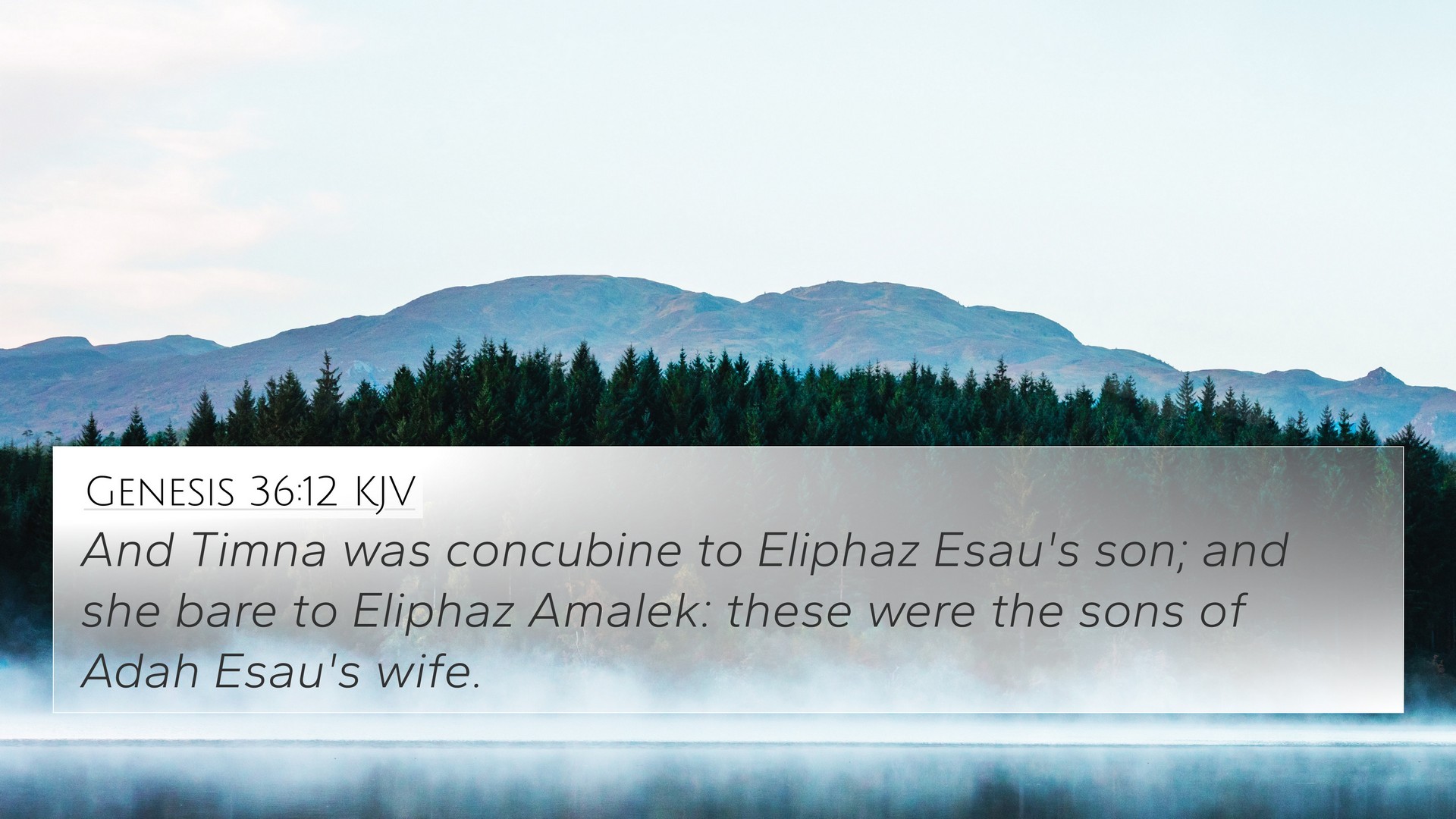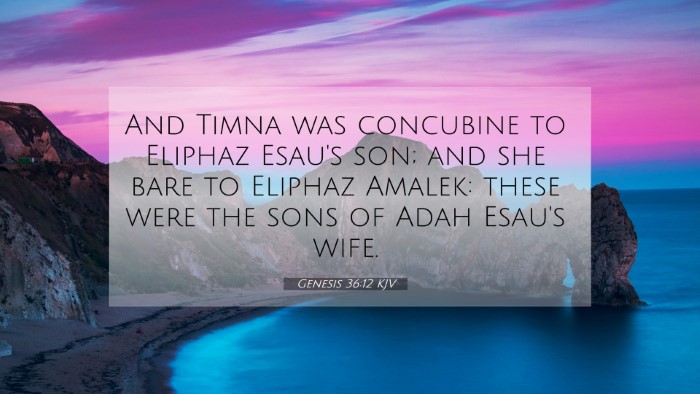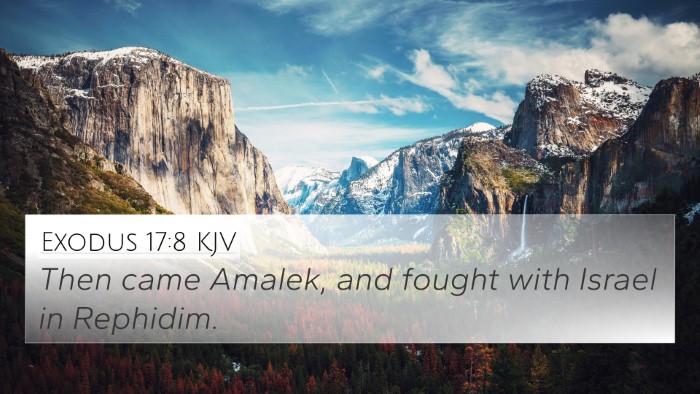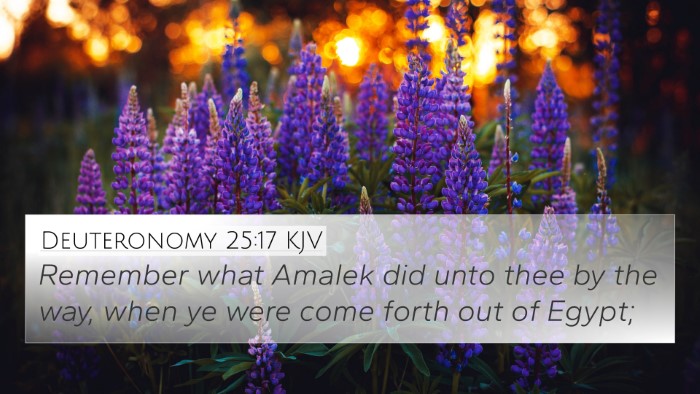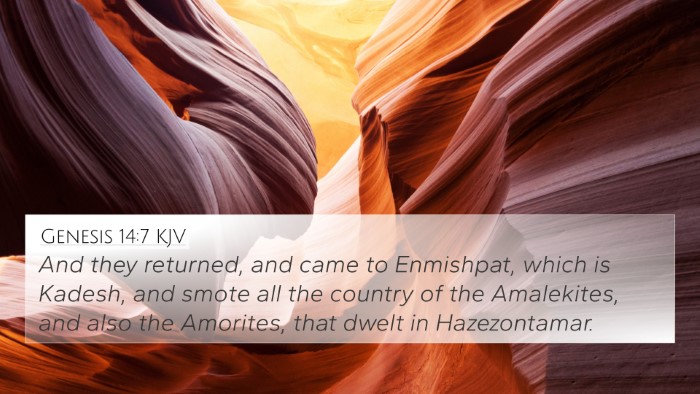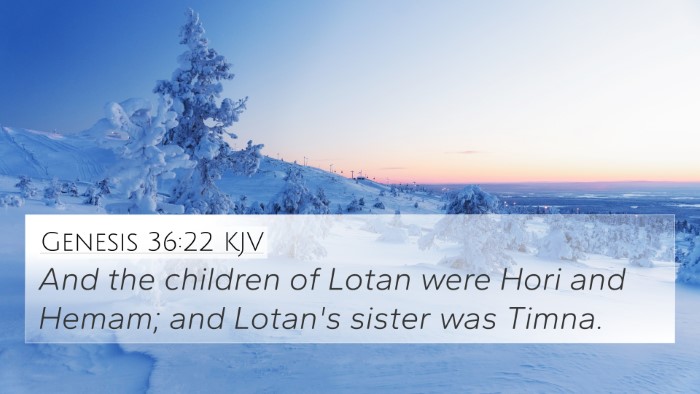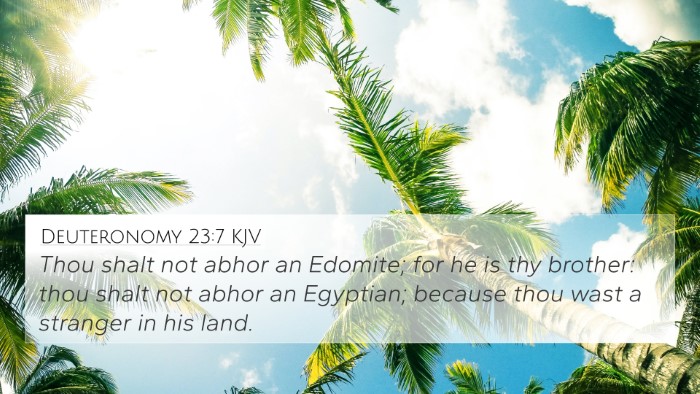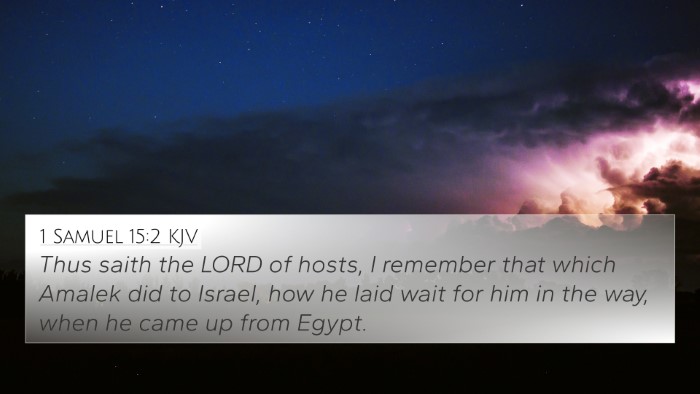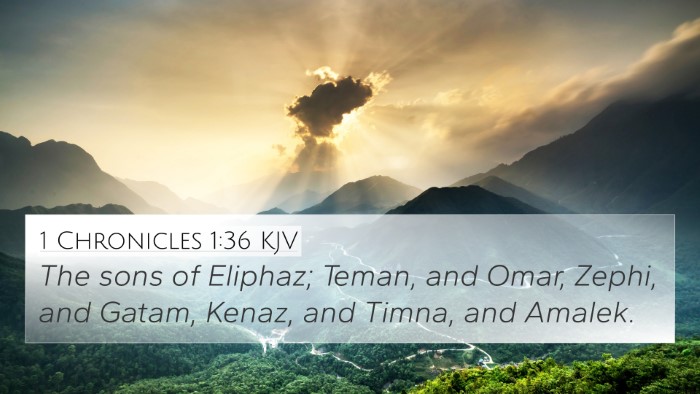Understanding Genesis 36:12
Genesis 36:12 presents the descendants of Esau, illustrating the lineage that stemmed from him. This verse specifically mentions the connection between Esau and the chief named Amalek, thus marking the roots of the Amalekites. The explanation of this verse can be enhanced through insights drawn from various public domain commentaries.
Matthew Henry's Commentary
Henry emphasizes the significance of genealogies in Scripture, highlighting how the line of Esau serves as an illustration of God's providence and the establishment of nations. This verse is a part of the broader narrative that showcases Esau’s descendants and their importance. The mention of Amalek underscores the future conflicts that arise between the descendants of Jacob (Israel) and Esau (Edom), hinting at larger theological themes of struggle and kinship.
Albert Barnes' Notes
Barnes offers a detailed analysis of the names listed, indicating that Amalek represents the first of the nations that would become antagonistic towards Israel. He stresses the importance of understanding these lineages as they relate to the broader historical and spiritual narrative within the Bible. The conflict between Amalek and Israel, which comes to a head in the Exodus narrative, serves as an important prelude to future descriptions of Israel's identity and challenges.
Adam Clarke's Commentary
Clarke provides valuable historical context by outlining the animosity that would develop between the Amalekites and the Israelites. He points out that this enmity began with the descendants of Esau and reflects a recurring theme within the Scriptures of nations rising in opposition to God's chosen people. Clarke’s insights help readers understand the implications of this verse not only in genealogical terms but also in the greater narrative of redemption and conflict found throughout the Bible.
Key Themes and Connections
- The genealogical significance of the descendants of Esau.
- The emergence of Amalek as a foreshadowing of future conflicts with Israel.
- Connections to broader themes of divine providence in the establishment of nations.
- The impact of familial relationships on national identities.
- Historical context of the Edomite and Israelite relations.
Bible Cross References for Genesis 36:12
- Exodus 17:8-14 - The battle with Amalek represents the ongoing struggle with sin and opposition.
- Deuteronomy 25:17-19 - A call to remember the actions of Amalek against Israel.
- 1 Samuel 15:2-3 - God commands Saul to destroy the Amalekites, illustrating the consequences of opposition to Him.
- Numbers 24:20 - Balaam's prophecy regarding Amalek being the first of the nations.
- Genesis 32:3 - Jacob's interaction with Esau highlights familial tensions and overarching themes of reconciliation.
- Obadiah 1:10-14 - The judgment of Edom is elaborated, showing the fate of Esau’s lineage.
- Hebrews 12:16 - A warning about profane behaviors, connected to Esau's lineage.
Conclusion
Genesis 36:12 serves as an important touchpoint for understanding the complexities of biblical genealogy, God's ongoing narrative through the descendants of Esau, and the implications of rivalries within the text. Through tools for Bible cross-referencing, readers can uncover deeper connections between this verse and the unfolding story of redemption within the Scriptures. Understanding these genealogies strengthens our grasp of God’s intentionality in history, both in the Old and New Testaments.
By engaging with cross-referencing Bible study methods, we identify the links and themes that provide insight into the relationships and consequences that shape the biblical narrative, enhancing our interpretation of not just Genesis 36:12, but the broader spectrum of God’s truth revealed through His Word.
